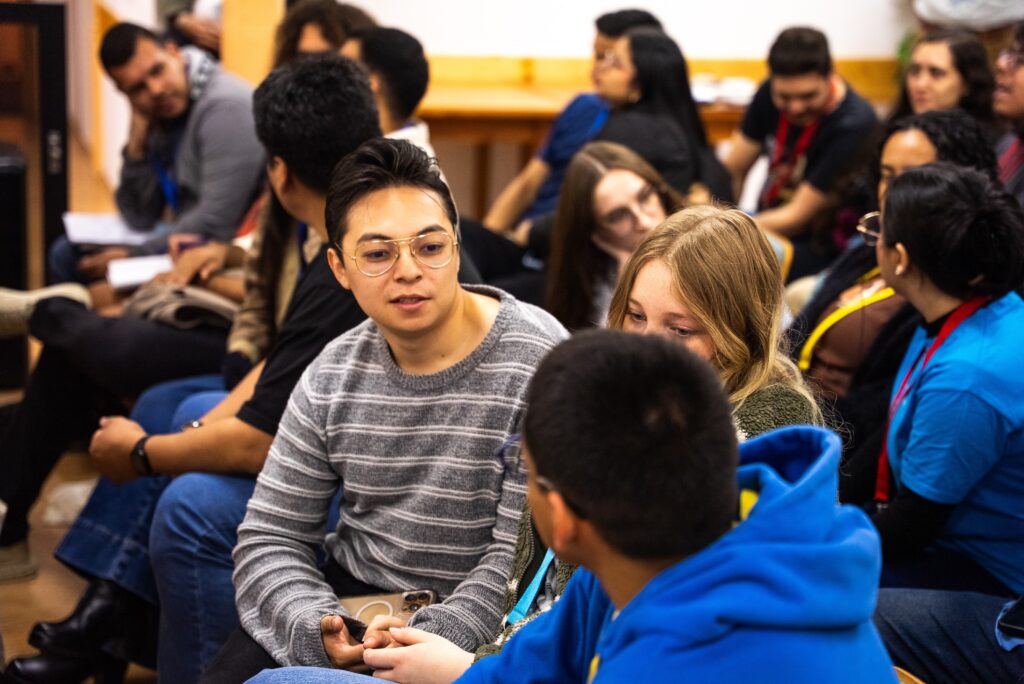Consistency is one of the most powerful traits any leader can cultivate. Many educators and leaders teach that habits form the foundation of success—but when consistency is paired with honesty and integrity in leadership, something extraordinary happens. These values don’t just improve performance; they shape who we are and the kind of influence we have on others.
As Kurline J. Altes, former Forbes Council Member, once wrote:
“Trust is the bedrock upon which successful leadership is built, fostering open communication, a solid organizational foundation, emotional safety, and a positive duplication effect—and even positively impacting mental health.”
Read the full article on Forbes.
Similarly, David Brooks wrote in The New York Times:
“Trust is usually built by leaders who create environments that encourage people to behave with integrity, competence, and benevolence.”
Read the article here.
At Cumorah Academy, students learn to use their own resources to develop integrity and honesty in their leadership styles. Every time they take action to improve, they’re not just growing personally—they’re building trust. No matter where life takes them, they carry these principles forward to lead with confidence and authenticity.
In this post, we’ll explore why honesty and integrity in leadership are essential for growth, trust, and effective teamwork—and how young leaders can apply these principles to their own goals and lives.

Building a Culture of Integrity
A leader’s daily behavior sets the emotional tone for everyone else. Teams mirror their leader’s values, and an honest, value-driven leader inspires trust and commitment across an entire organization.
In both professional and educational settings, integrity is contagious. When people see their leaders keeping promises, being transparent in decisions, and admitting mistakes, they feel safe to do the same. That safety is what transforms a group of individuals into a high-functioning team.
In high-level educational and professional environments, we witness this transformation every cycle. Mentors and peers work together to create an atmosphere built on trust and authenticity.
Leaders who embody honesty and integrity in leadership show others that success isn’t about manipulation or shortcuts. It’s about courage—the courage to do the right thing even when it’s difficult, and the humility to learn from failure. Over time, this mindset builds a culture of reliability and respect that everyone can feel.
Consistency: The Quiet Hero of Leadership
If honesty and integrity form the foundation of leadership, consistency is the structure that supports it. It’s easy to be honest once, or to act with integrity when others are watching. But great leaders make those choices daily—especially when no one is looking.
Consistency is often invisible. No one celebrates you for sending that follow-up email, keeping a promise, or preparing before a meeting. Yet these quiet actions build a reputation for reliability. In the long run, consistency creates trust—and trust creates influence.
Effective leaders learn that leadership isn’t always about dramatic victories. It’s about showing up, being accountable, and staying faithful to one’s values over time.
As author Tim Ferriss, author of The 4-Hour Workweek, once said:
“Slow down and remember this: Most things make no difference. Being busy is often a form of mental laziness—lazy thinking and indiscriminate action.”
Leadership, then, is not about how much we do, but how we do it. When our actions align with our values—when we combine consistency with honesty and integrity in leadership—we create results that last far beyond our immediate efforts.

Learning from Our Mentors: Andreas and Jill Lex
Last week, Cumorah Academy students had the opportunity to learn these lessons firsthand from our mentors, Andreas and Jill Lex.
Together, the mentors shared experiences about how trust and honesty influence every part of life—career, relationships, and self-development.
Mariana, a student from Brazil, reflected on what she learned:
“My favorite moment was when everyone shared their experiences about trust. I learned so much from listening to others. I feel really good when people believe in me and feel safe around me, so I will make an effort to be a trustworthy person. To do that, I know I should always act with honesty and integrity.”
Rocio, from Argentina, had a similar experience:
“I learned more deeply about honesty, integrity, and trust. The mentors gave a special touch by sharing their personal experiences. My favorite part was analyzing real-life situations and applying what we learned. We connected it not only to the workplace but also to family and friendships. These classes inspired me to set goals to improve in that area of my life.”
Their stories remind us that honesty and integrity in leadership are not abstract ideas—they’re living principles that change how we interact, inspire, and grow.
Applying These Principles in Your Own Life
No matter where you are in your journey—whether you’re preparing for your first leadership role, starting a new business, or simply trying to influence those around you—you can begin applying these principles right now.
It starts with clarity. In his bestselling book Eat That Frog!, Brian Tracy wrote:
“Clear written goals have a wonderful effect on your thinking. They motivate you and galvanize you into action. They stimulate your creativity, release your energy, and help you to overcome procrastination as much as any factor.”
That’s why goal-setting is not just about productivity—it’s about purpose. When your goals are grounded in honesty and integrity in leadership, every decision you make aligns with your values.
Here are seven practical ways to apply these lessons in your own life:
- Set clear, value-based goals.
Write down what you want to achieve this year—and define why it matters to you. When your goals are connected to your core values, you’ll naturally act with greater integrity. - Be transparent in your communication.
Whether at school, work, or home, be honest about your expectations, mistakes, and progress. Transparency creates trust and encourages others to do the same. - Keep your promises, even the small ones.
Integrity grows in the small moments—showing up on time, finishing what you start, or keeping a private confidence. Reliability builds credibility. - Admit when you’re wrong and make it right.
Great leaders don’t hide their errors—they take responsibility and use them as opportunities to grow. Owning your mistakes earns far more respect than pretending they never happened. - Practice consistency over intensity.
Leadership is built day by day. Instead of chasing perfection, focus on showing up regularly. Small, steady actions often make the biggest impact. - Surround yourself with trustworthy people.
Integrity is easier to maintain when you’re part of a community that values honesty and accountability. Seek mentors and peers who help you stay aligned with your principles. - Reflect regularly.
Take time each week to ask yourself: “Am I leading with honesty? Am I being consistent with my values?” Reflection helps you stay grounded and intentional.
Each time you practice one of these steps, you strengthen your foundation as a leader. You’ll build trust, attract meaningful relationships, and develop a reputation for authenticity that opens doors wherever you go.

Integrity: From Professional Skill to Essential Life Skill
The world doesn’t need more leaders who chase success at any cost—it needs leaders who stand for truth, courage, and compassion. It needs leaders who build trust, foster growth, and lift others up.
At Cumorah Academy, we believe that honesty and integrity in leadership are not just professional skills—they are life skills. When students embrace these values, they don’t just become better leaders; they become better people.
Take the Next Step in Your Leadership Journey
If you’re ready to grow in confidence, strengthen your values, and lead with authenticity, join us at Cumorah Academy.
Our programs are designed to help you discover your potential, connect with mentors from around the world, and live with purpose.
Apply now to experience a semester that transforms how you see leadership, success, and yourself.
Written by Fernando L. Ferreira Jr.
Supervision by Kamila Uberto Fullmer




